Dan Neil Is Insane
When Jonathan Swift’s “A Modest Proposal” was first published, its sustained and unyielding irony lead more than a few to believe that the Irish scribe was actually advocating for cannibalism and infanticide. With the benefit of nearly 300 years, we can now recognize Swift’s detailed plan to serve the children of Ireland’s poor to their landlords as biting satire. Reading the LA Times‘ Dan Neil’s own “modest proposal,” one can’t help but go back and check for signs of self-aware irony (a far less scarce resource than it was in 1729). Sadly, there’s no much to go on, leading me to believe that Dan Neil actually wants the United States federal government to purchase General Motors. Or is there? After the usual litany of Big 3 woes, Neil “modestly proposes” as US takeover of GM. He then correctly anticipates the “gall of free-market ideology rising” in his readers, and he breaks down the case. And it’s off to irony no-mans land.
“Here are the benefits of nationalization,” as Neil sees them. First, GM is too big to fix with just $15b, and believe GM can “magically right-size in Chapter 11 is foolhardy.” In other words, it’s gonna cost a lot and it can’t be easily “right-sized.” Using these facts as arguments for nationalization gets my irony alarm ringing like it’s a Monday, but Neil keeps pushing. “Time is of the essence. Congress, writing a GM law and using federal power to abrogate contracts, could achieve at least some of these goals at a stroke.” Ah, so let’s open a huge can of federalism worms then, shall we. After all, the federal government can do whatever it wants, right?
After a brief recounting of GM’s alleged strong points (overseas ops, Volt, ‘vette), Neil then makes the bold claim that GM is competing with “quasi-nationalized” firms. Meaning? “If you consider the advantages the government of Japan has bestowed on Toyota, Nissan and Honda — in terms of healthcare and retirement benefits for its employees — the unevenness of the field is clear. The same goes for most European companies, and the rising rivals in China will enjoy similar state-subsidized advantages.” And though Neil is approaching a solid argument here, he fails to consider what it would be like for (say) Ford to compete with “GM-USA” as Neil terms his proposal. Word to Neil: if this is satire, go the whole nine yards and back the American Leyland line. It’s what Swift would have done.
The hardest part of analyzing Jonathan Swift’s satire is discovering exactly who and what he’s making fun of. Neil, on the other hand, is clearly motivated by green. Energy independence, that is. “Let’s avoid the euphemisms and have the courage of our supercharged Keynesian convictions,” writes Neil, once again stimulating the flow of “free maket ideology gall.” “By nationalizing GM, we can aim the company’s astonishing resources at one of the biggest public-policy problems we have: oil. Restructured and refocused, GM could build green vehicles by the millions in a few years and still have the capacity to build gasoline- and diesel-powered pickups (which we’ll still need) … and maybe even some Corvettes on the side.” Or, we could look into extracting alternative fuel from babies. Just sayin’
More by Edward Niedermeyer
Latest Car Reviews
Read moreLatest Product Reviews
Read moreRecent Comments
- Zipper69 "At least Lincoln finally learned to do a better job of not appearing to have raided the Ford parts bin"But they differentiate by being bland and unadventurous and lacking a clear brand image.
- Zipper69 "The worry is that vehicles could collect and share Americans' data with the Chinese government"Presumably, via your cellphone connection? Does the average Joe in the gig economy really have "data" that will change the balance of power?
- Zipper69 Honda seem to have a comprehensive range of sedans that sell well.
- Oberkanone How long do I have to stay in this job before I get a golden parachute?I'd lower the price of the V-Series models. Improve the quality of interiors across the entire line. I'd add a sedan larger then CT5. I'd require a financial review of Celestiq. If it's not a profit center it's gone. Styling updates in the vision of the XLR to existing models. 2+2 sports coupe woutd be added. Performance in the class of AMG GT and Porsche 911 at a price just under $100k. EV models would NOT be subsidized by ICE revenue.
- NJRide Let Cadillac be Cadillac, but in the context of 2024. As a new XT5 owner (the Emerald Green got me to buy an old design) I would have happy preferred a Lyriq hybrid. Some who really like the Lyriq's package but don't want an EV will buy another model. Most will go elsewhere. I love the V6 and good but easy to use infotainment. But I know my next car will probably be more electrified w more tech.I don't think anyone is confusing my car for a Blazer but i agree the XT6 is too derivative. Frankly the Enclave looks more prestigious. The Escalade still has got it, though I would love to see the ESV make a comeback. I still think GM missed the boat by not making a Colorado based mini-Blazer and Escalade. I don't get the 2 sedans. I feel a slightly larger and more distinctly Cadillac sedan would sell better. They also need to advertise beyond the Lyriq. I don't feel other luxury players are exactly hitting it out of the park right now so a strengthened Cadillac could regain share.



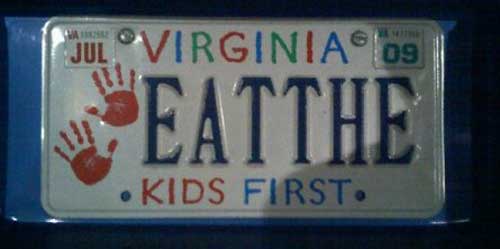
















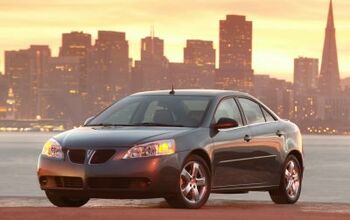

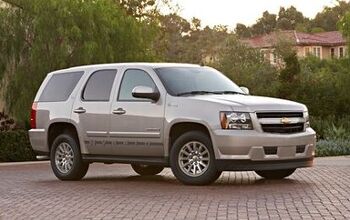
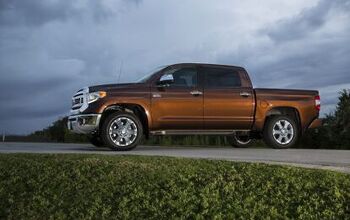
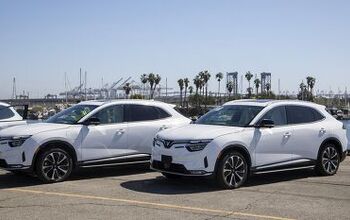


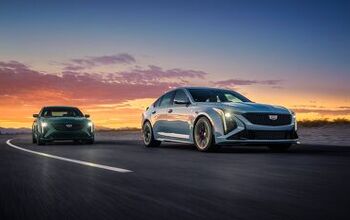






Comments
Join the conversation
@Lumburgh21: One other thing to consider is that the government doesn't like competitors, and having the coercive power of the state it can write the rules any way it wants to. They could subsidize purchases of their own cars by offering tax incentives for buying them, or even more directly by using tax money to pay for some or all of the production costs (lowering the cost and thus the purchase price artificially). They could make it a requirement that all new models designed by non-government automakers must be approved by a "sanctioning body" (made up of government bureaucrats, of course) before they can be produced - American Leyland models would always be rubber-stamped, of course. Since GM is really only good at making trucks, they could make it illegal for anyone else to make trucks for sale in the US. Some may say I'm being ridiculous, but what people forget about government-run enterprises is that they are owned and operated by the same entity that makes the rules by which everyone plays the game, and can thus rewrite those rules at any time. Indonesia did something like this at one time - taxes on vehicles not manufactured by the Indonesian state effectively doubled the price. This was the only way they could get the public to buy their crappy cars. There are many companies that have, or could develop, the capacity to deliver mail in the United States (UPS, Fed Ex, etc), but yet no one has. Why? Because the government has declared itself as the only entity allowed to deliver mail. It doesn't matter to the end user - as long as they get their mail in a reliable and timely fashion, who cares who delivers it? It matters a great deal to the many thousands of government employees who have a stake in how the mail is delivered now. In a free market system, the players have to compete against each other. When the government is also a player, they don't need to compete with anyone. All this is a long way of saying that just because the government would suck at making cars doesn't mean that other car makers will be better off for it.